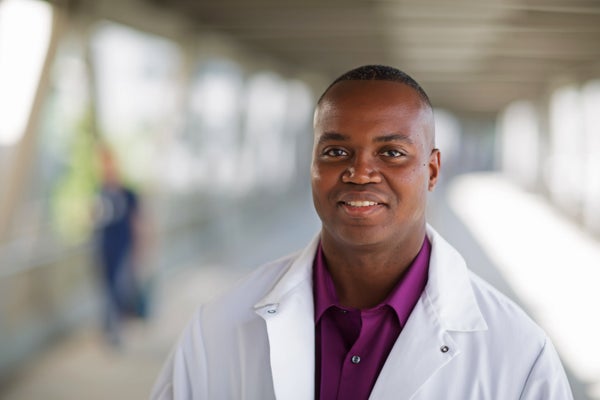Antonio T. Baines knows what it’s like to feel alone in the lab. He lived it while getting his doctorate. “I was in this Ph.D. pharmacology/toxicology graduate program, and there was nobody who looked like me when I first got there,” he says.
At the time, Baines, who is African American, was studying at the University of Arizona. He entered his graduate program with a friend, who was also Black. “She was in the master’s program,” Baines says, “but we were the only two.”
Now, as an associate professor and a cancer researcher in the Department of Biological and Biomedical Sciences at North Carolina Central University, he is working to change such situations. He mentors, he teaches, and he is a spokesperson and advocate for the next generation of students of color coming into the sciences.
On supporting science journalism
If you're enjoying this article, consider supporting our award-winning journalism by subscribing. By purchasing a subscription you are helping to ensure the future of impactful stories about the discoveries and ideas shaping our world today.
“I think representation is so important—you need to see folks who look like you, no matter who you are, and others need to see that, too” Baines says. “If you don’t ever see it, then, is it possible?”
Watch the full 52-minute interview here.
This discussion is part of a speaker series hosted by the Black Employee Network at Springer Nature, the publisher of Scientific American. The series aims to highlight Black contributions to STEM (science, technology, engineering and mathematics) a history that has not been widely recognized. It will cover career paths, role models and mentorship, and diversity in STEM.
